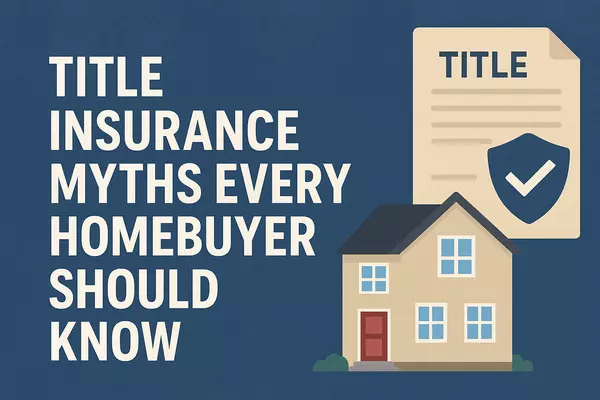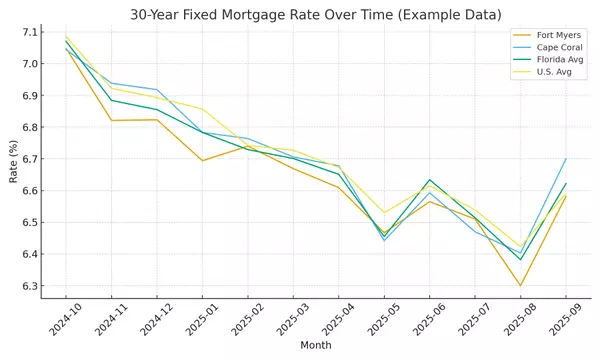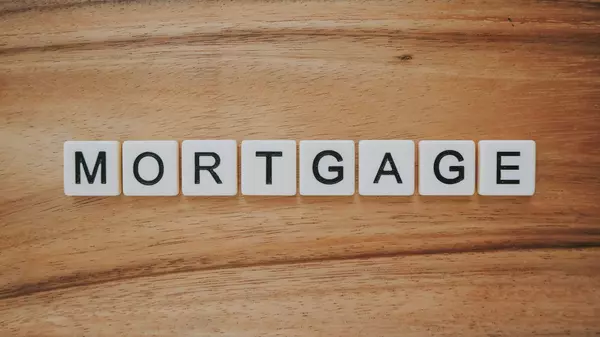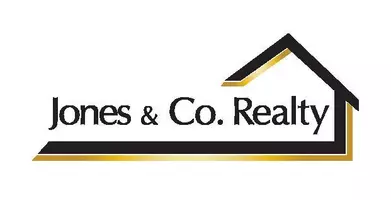Understanding Inspections

There’s nothing as exciting as finding the perfect home. From the right number of bedrooms to a spacious yard, finding a house that satisfies your standards can have you eager to call it home sweet home. However, excitement can turn to distress if the home inspection report turns up needed repairs. But don’t fret, even though we typically use the "As-Is" contract in Florida, you can still negotiate.
The inspection process
Home inspections are an essential part of the home buying process. They can help you uncover potential problems and address these issues in a timely and efficient way so you can focus on moving into your new home. Most inspections focus on:
- Electrical
- HVAC system
- Plumbing
- Roof and attic
- Appliances
If the home was built prior to 2002, a wind mitigation inspection will also be required, since that is when building codes changed. Homes built in 2002 or after were required to meet roofing regulations by building code, and therefore automatically receive wind mitigation credits.
By far, the most popular reason for getting a wind mitigation inspection is to save money on your insurance premiums. Legally, your carrier must provide you with insurance discounts for a “passing grade.” The more wind-resistant features your roof has, the deeper your discount.
Unlike a typical home inspection, a wind mit inspection focuses on your roof. A wind mitigation inspection looks at seven key areas of your roof to determine its ability to withstand strong winds and water intrusion.
Construction Year: the year your home was built, which tells the home inspector how strict the building codes were;
Roof Covering: the type of roof covering (shingle, tile, etc.) and age of the roof;
Roof Decking: the material your decking (i.e. the material your shingles are nailed to) is made of, the type of nails securing the shingles, and how far apart the nails are;
Roof To Wall Attachment: the method used to attach the roof to your walls;
Roof Shape: the shape and slope of your roof;
Secondary Water Resistance: the type of material between the shingles and roof decking;
Opening Protections: whether you have additional protections on openings such as sunroofs, garage doors, windows, etc.
If the home is more than 30 years old, your insurance company will more than likely also require a 4-pointe inspection. A 4-point inspection looks at the 4 major systems (Roof, Electrical, Plumbing, HVAC). An insurance company wants to know that an older home has been well maintained, and the major systems are in good working condition. This is not a safety inspection. They are done by a licensed inspector or building contractor.
Here is what a 4 point inspection looks at:
Roof: Type of Roof Covering (shingles, tile, rolled). The age and condition of the roof. Are there missing shingles or leaks?
Electrical System: The type of wiring in the home (copper, aluminum, knob, and tube). The brand of the electrical panel. The condition of the home's electrical system
Heating and Cooling: Is there central heat and air in the home? The age and condition of the system. Are there signs of leaking?
Plumbing System: Type of supply and drain lines found in the home (copper, CPVC, galvanized, lead, polybutylene, etc.) Is there evidence of current leaks? The age of the hot water heater.
Some insurance companies require the inspector to use their form. Other insurance companies allow the inspector to use their preferred format. In addition to the written report, the inspector will take photos of each of the major systems to provide to the insurance company.
Whether the home "passes" or "fails" a 4-point inspection will not change the cost of your homeowner's insurance. This inspection simply determines whether an insurance company will offer insurance on the older home.
Once you have received the report from the home inspector, take some time to review it with your Realtor. They have the experience and know-how to guide you and determine what repairs or concessions you should request.
Prioritize repairs
After you go over the report, it can be helpful to prioritize the needed repairs by both cost and severity. If there are any significant issues, like foundation damage or bad wiring, you should prioritize these concerns over repairs that may be less expensive. Note any problems that will cause you to walk away from the sale if the seller does not address them.
Request repairs or concessions
Once you have your list of must-have repairs, you will need to negotiate with the seller to find a way to correct these issues by asking them to complete the requested repairs as part of the closing. The seller could offer a concession or credit toward the repairs instead. In that case, you will need to agree on a price to complete the repairs, and the seller can either adjust the home’s purchase price or pay an equivalent amount of your closing costs.
Credits or concessions may be the preferred option for many sellers, as making repairs on the home can add another task to an already hectic moving to-do list. Additionally, as the buyer, you have no control over the repairs, and they may not be up to your standards.
If you agree to a concession or credit, make sure you get quotes from a general contractor on how much the repairs will cost—this will help you have a ballpark idea of how much you will need to make these repairs. You can share them with the seller to justify the concession or credit amount.
Other considerations
Before negotiating, make sure you understand the following information:
If a home is listed as-is, it’s unlikely the seller will want to make any repairs or pay to have them fixed. However, if a home inspection discovers a major problem, you can still request a reduction or credit to help rectify the issue.
If you’re buying a home in a seller’s market, be mindful of how many repairs or concessions you request. A seller is not obligated to make any repairs.
Know when to walk away
If there comes a time when it feels like you’re at an impasse and the seller won’t budge on your repair requests, it may be time to look for a different home. The home inspection contingency clause in your contract allows you to back out of the sale without losing your earnest money deposit if the home inspection results are not up to your satisfaction or you cannot come to an agreement with the seller.
By better understanding the negotiating process, you’ll be ready to get back on track to move into your dream home. #homebuying101 #househunting #Realtors #BuyersAgent #homebuyingtips #homeinspection #firsttimehomebuyer
Categories
- All Blogs 336
- 55+ Communities 9
- Boating Communities 9
- First Time Home Buyer 108
- Florida Lifestyle 67
- Foreclosures 2
- Fun Things to do in Lee County, Florida 37
- Golf Communities 23
- Home Buyer Tips 123
- Home Seller Tips 101
- Homeowner Tips 61
- Mortgage Tips 37
- Neighborhoods 62
- Schools 3
- Title & Escrow 2
- Title Insurance 4
Recent Posts










GET MORE INFORMATION

Billee Silva, PA, ABR SRS
Licensed Realtor | License ID: P3275278
Licensed Realtor License ID: P3275278
